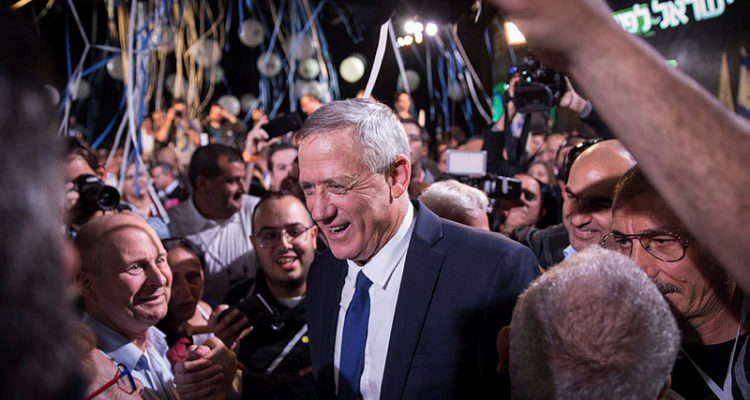Benny Gantz may impact Israel’s April 9 elections in a way he didn’t foresee.
By Daniel Krygier, World Israel News
Former IDF chief of Staff Benny Gantz is emerging as the most serious challenger to Prime Minister Benjamin Netanyahu. A recent poll shows that if Gantz and his political partner, a fellow former IDF chief-of staff, Moshe Yaalon, unite with Yair Lapid’s Yesh Atid (“There is a Future”) party, they could beat Netanyahu’s Likud in the upcoming Israeli elections in April.
What does the Gantz factor mean for Israel’s political future?
The political rookie Gantz has decided to position his Israel Resilience Party in the political center. While this offers opportunities, it is also risky. Over time, the Israeli political map has become a graveyard for emerging and superficial centrist parties ranging from Tommy Lapid’s secular-liberal Shinui party to Kadima. Even Yair Lapid’s party has lost much of its stardust since it was launched in 2013.
In a nutshell, while Israelis embrace political moderation, they tend to be conservative – at least in defense matters. Around 70 percent of Israelis reportedly prefer a right-wing or center-right government over a left-wing or center-left government. This presents Gantz with a dilemma if he decides to join the center-left camp to challenge Prime Minister Netanyahu.
In his political maiden speech, Gantz appeared to channel U.S. President Barack Obama, offering Israelis “hope” and “change.” If these slogans sound old in a post-Obama America, they sound outlandishly out-of-touch with harsh Middle Eastern realities.
While it is tempting to blame the Israeli right for the absence of peace, sober and honest observers know that Israel’s hostile neighbors ultimately hold the keys to genuine peace. Ramallah was no less opposed to peace with the Jewish state during the era of the left-wing governments of Yitzhak Rabin, Shimon Peres and Ehud Barak. Indeed, quite the opposite – unilateral Israeli concessions have only hardened Ramallah’s radical positions and pushed peace even further into a distant future. Israelis understand this.
This has clear implications for Benny Gantz and any other prospective leader entering Israeli politics. Due to the makeup of Israel’s political map, it will be difficult for Gantz to defeat Netanyahu if he positions himself as a left-wing alternative to Likud. Gantz is aware of it, rejecting advances from the likes of Labour’s Avi Gabbay’s and Tzipi Livni, who leads the Hatenua party.
Nevertheless, there is a movement to coalesce all anti-Likud elements around Gantz. It will be difficult for Gantz to resist the temptation to head such a coalition, which offers the only realistic chance to defeat Netanyahu.
Ironically, such a Gantz-led center-left block may serve as a catalyst for an even larger centrist-right bloc. Already fears of an effective, anti-Netanyahu coalition have led to calls on the right for more coalition-building to avoid a surprise drubbing in the April elections.
If the right does unite, it will have Gantz to thank for it.




